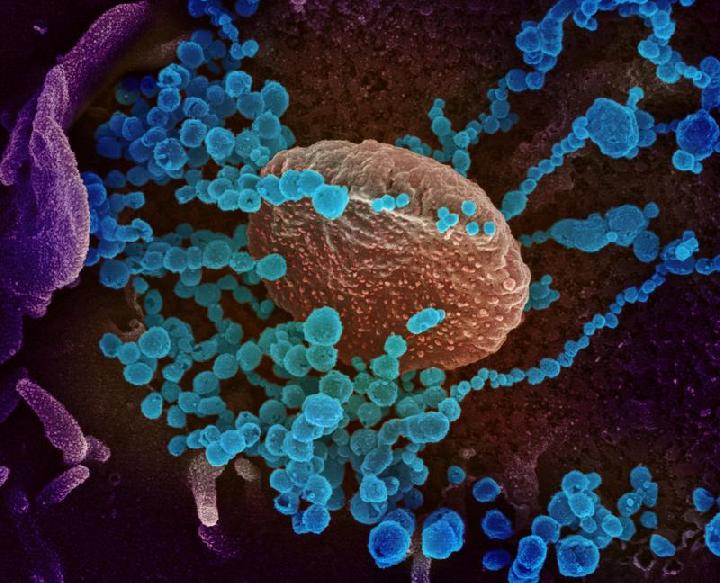
TEMPO.CO, Jakarta - IN its response to the coronavirus and the problems that it causes, the government should not be hasty or reactive, or try makeshift solutions.
This is also true when the World Health Organization warns of the possibility of food shortages following this global pandemic.
President Joko Widodo's reaction in the form of immediately establishing a "rice barn" in Kalimantan looks at first glance to be a smart move. In April, the President said that there was a shortage in supplies of a number of foodstuffs such as rice, corn, chilies, onions, eggs, sugar, and garlic. There were rice deficits in seven provinces.
However, the President's proposal to lay out rice fields in peatlands in Central Kalimantan has sparked debate. Following the removal of paddies and communal plantations in Java - in one case to make room for the construction of an international airport in Yogyakarta - the government seems uncertain about what to do about the rice deficit. Every year at least 500,000 hectares of farmland is converted to be used for roads, or for retail, industrial or other non-agricultural activities.
It seems that the government has forgotten its history and is repeating the actions of President Suharto 25 years ago: insisting on converting marshland into productive land. This was trumpeted as a way of increasing the supply of rice, but the million-hectare peatland program ended in tragedy: it left a legacy of environmental damage and projects tarnished with corruption. Agriculture in peatland was tried again in 2008 and 2015, but yet again failed.
The Central Kalimantan "rice barn" is scheduled to be ready in 2021 and is targeted to be operational the following year. Located in Pulang Pisau and Kapuas regencies, the project will cover 165,000 hectares, some of which is traditional land or land farmed by transmigrants. Most of the area is alluvial shallow peatland.
The big question mark is over the effectiveness of this program. It is impossible to make the land ready for planting in only one year. A number of experts have said at least three years are needed to lay-out rice paddies. Although some of the land-only needs improvements to the quality of the soil and more irrigation, constructing irrigation channels in peatlands - as was done during the Suharto era - only dries out the land, making it unsuitable for planting.
The government claims that it is not starting from scratch. Some of the lands is alluvial with the marsh being less than three meters deep. Other land has already been turned into rice fields and is now being managed by former transmigrant farmers. In other locations, there are already irrigation channels and the remainder are ready to be used but have been neglected and are covered with grass. However, these claims are open to question because they are based on data taken from the 2008 project.
A new survey is needed in order to provide up-to-date information. New data is needed because 12 years ago the project did not succeed. Furthermore, based on a study by the Central Kalimantan Regional Development Planning Agency and Palangka Raya University, only one-fourth of the land in the plan is suitable for agriculture. Considerable time and significant funding will be needed before the rest is ready.
A comprehensive environmental impact analysis is also needed. The claim that the peatland is already shallow because of repeated burning of the forest must be proven scientifically. Unfortunately, the environmental aspect is being ignored. The government seems to be satisfied with completing a strategic environmental study, an abbreviated environmental impact study that can be finished in only one month.
Increasing the area of agricultural land is not the only solution to food shortages. It is time the food diversification program was rolled out. Rice is not the only source of carbohydrates. Alternative foods such as sago, corn, sorghum and other root crops must be promoted.
If it does go ahead, the laying out of new rice fields must be carried out in line with a comprehensive plan and design. For example, agricultural land must become part of a sustainable agriculture project. Proper planning will avoid repeating the errors in the project to layout rice fields in South Sumatra. In Perigi Talang Nangka village, Ogan Komering Ilir Regency, hundreds of acres of rice fields on peatland cannot be used because they are flooded whenever it rains.
Moreover, entrusting a strategic food project to the minister of defense is clearly a mistake. This ministry should limit itself to protecting the nation from external threats. Agriculture matters should be under the agriculture ministry. If the minister is not competent, he should be replaced with a person who is more capable. When anticipating food shortages, the motive of preserving the balance of power for short-term political interests must be completely put out of mind.
Read the Complete Story in Tempo English Magazine























